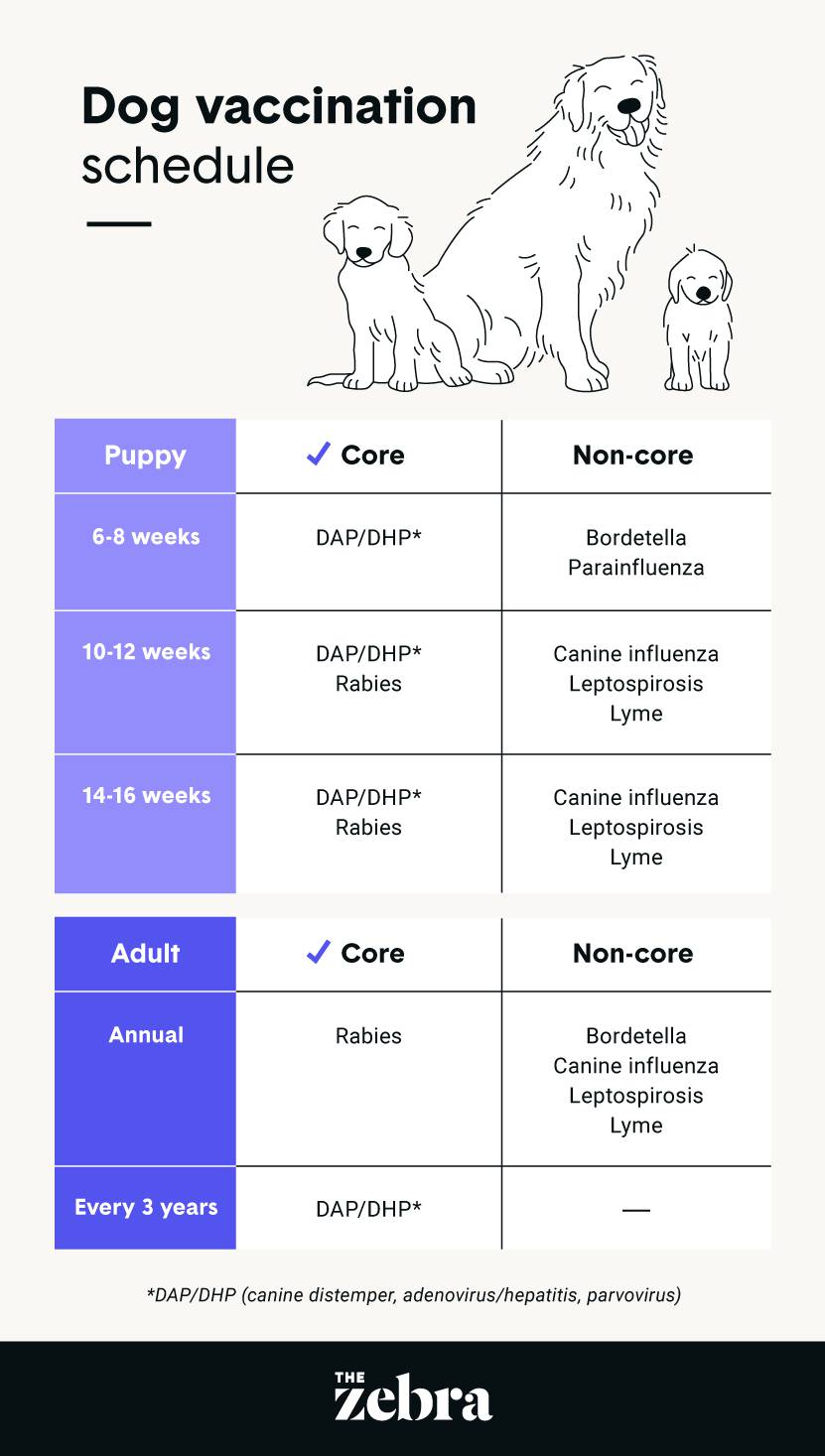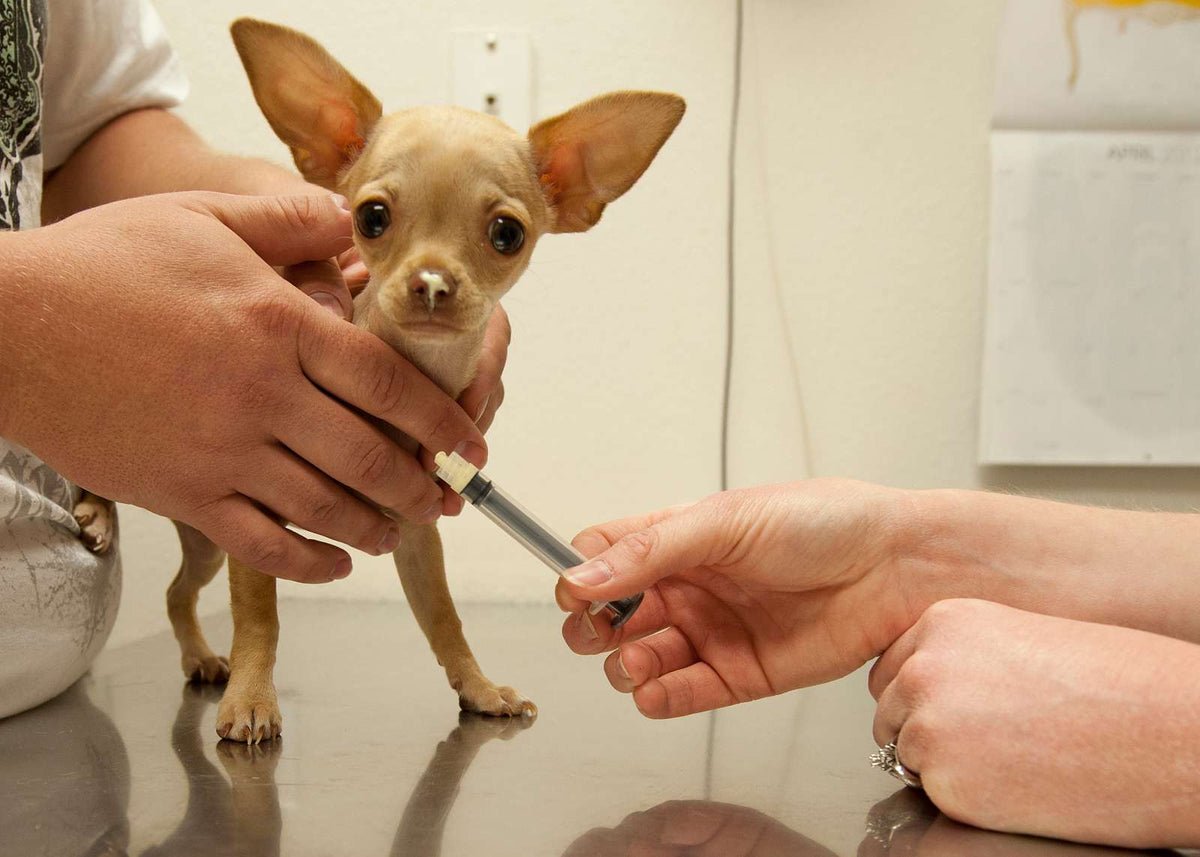As a professional in the veterinary field, I understand the importance of keeping chihuahua puppies healthy and protected. Did you know that chihuahuas are especially susceptible to certain diseases due to their small size? That’s why it is crucial to ensure they receive the necessary shots to bolster their immune systems and safeguard their well-being.
When it comes to chihuahua puppies, there are several necessary shots they need to receive. These include vaccinations against diseases such as distemper, parvovirus, and rabies. These diseases can be potentially fatal, especially for puppies, so it’s essential to stay up to date with their vaccinations. By providing them with these shots, we can help protect their health and prevent the spread of these diseases to other dogs in the community. Remember, prevention is key when it comes to keeping our chihuahua puppies happy and healthy.

What Shots Do Chihuahua Puppies Need?
Chihuahuas are small, adorable, and popular dogs. They require proper care to ensure their health and well-being. One crucial aspect of caring for Chihuahua puppies is ensuring they receive the necessary vaccinations. Vaccinations protect them from various infectious diseases and help to keep them healthy. In this article, we will explore the shots that Chihuahua puppies need to stay protected and thrive.
1. Distemper Vaccine
The distemper vaccine is crucial for Chihuahua puppies. Distemper is a highly contagious viral disease that can cause respiratory, gastrointestinal, and neurological problems. This vaccine is given in a series of shots starting at around 6-8 weeks of age and then repeated every 3-4 weeks until the puppy reaches 16 weeks old. It is often combined with other vaccines to create a combination shot, making it convenient for both the puppy and the owner.
Although distemper is not as prevalent as it once was due to widespread vaccination efforts, it is still a serious threat. By ensuring your Chihuahua puppy receives the distemper vaccine, you are taking an important step in protecting their health.
In addition to the initial series of shots, it is recommended to provide your Chihuahua with a booster vaccination every 1-3 years, depending on your veterinarian’s recommendation and local regulations.
2. Parvovirus Vaccine
The parvovirus vaccine is essential for Chihuahua puppies as it protects them from a deadly viral infection. Parvovirus attacks the gastrointestinal system and can cause severe dehydration, vomiting, diarrhea, and even death. Chihuahua puppies are particularly vulnerable to parvovirus, so it is crucial to ensure they receive proper vaccination.
The parvovirus vaccine is typically administered in a series of shots, starting at around 6-8 weeks of age. Similar to the distemper vaccine, it is usually combined with other vaccines to create a combination shot. Boosters are recommended every 1-3 years to maintain immunity.
It is important to note that parvovirus is highly contagious and can survive in the environment for extended periods. Therefore, it is crucial to avoid areas where infected dogs have been until your Chihuahua completes their vaccination series.
3. Rabies Vaccine
The rabies vaccine is required by law in most states and is essential for all dogs, including Chihuahuas. Rabies is a fatal viral disease that affects the central nervous system. It can be transmitted to humans and other animals through bites or scratches from infected animals, making it a significant public health concern.
The initial rabies vaccine is usually administered when Chihuahua puppies are around 12-16 weeks old, followed by a booster shot after one year. Subsequent boosters are typically given every 1-3 years, depending on local regulations.
Ensuring your Chihuahua is up-to-date with their rabies vaccinations not only keeps them protected but also helps to promote public safety by preventing the spread of this deadly disease.
4. Bordetella Vaccine
The bordetella vaccine, also known as the kennel cough vaccine, is particularly important for Chihuahuas that are frequently exposed to other dogs, such as those who visit grooming salons, dog parks, or boarding facilities. Kennel cough is a respiratory infection that can be caused by several different infectious agents, including Bordetella bronchiseptica bacteria and various viruses.
The bordetella vaccine can be administered via injection or intranasally. It is typically given annually, but some veterinarians may recommend more frequent boosters for dogs at a higher risk of exposure.
In addition to vaccination, practicing good hygiene, such as regularly disinfecting your Chihuahua’s belongings and avoiding contact with sick dogs, can further reduce the risk of kennel cough.
5. Canine Hepatitis Vaccine
The canine hepatitis vaccine protects against an infectious disease caused by the adenovirus type 1. Canine hepatitis primarily affects the liver and can lead to severe illness and even death. While the disease is less common due to widespread vaccination, it is still a risk for unvaccinated dogs, including Chihuahuas.
The canine hepatitis vaccine is typically combined with the distemper and parvovirus vaccines to create a combination shot. It is administered in a series of shots, starting at around 6-8 weeks of age, with boosters given every 1-3 years thereafter.
Vaccinating your Chihuahua against canine hepatitis is an essential step in protecting their overall health and well-being.
6. Leptospirosis Vaccine
The leptospirosis vaccine protects against a bacterial infection caused by Leptospira bacteria. Leptospirosis can lead to liver and kidney damage, as well as potentially fatal complications. Chihuahuas can contract leptospirosis through contact with infected urine from other animals, including wildlife.
Depending on your geographical location and your Chihuahua’s lifestyle, your veterinarian may recommend the leptospirosis vaccine. The vaccine is typically given annually and may be combined with other vaccines.
Preventing exposure to areas where infected animals may have urinated, such as stagnant water or areas heavily populated by wildlife, can also reduce the risk of leptospirosis.
7. Canine Influenza Vaccine
The canine influenza vaccine, also known as the dog flu vaccine, protects against the respiratory infection caused by the canine influenza virus. While not all dogs may require this vaccine, it is worth considering for Chihuahuas that are frequently exposed to other dogs in high-risk environments, such as dog shows or daycare facilities.
The canine influenza vaccine is typically given as a series of two shots, with boosters given annually. It may be recommended by your veterinarian based on the prevalence of canine influenza in your area and your Chihuahua’s lifestyle.
By vaccinating your Chihuahua against canine influenza, you can help protect them from this highly contagious respiratory illness.
Other Considerations for Chihuahua Puppy Shots
In addition to the vaccinations mentioned above, there are a few other considerations to keep in mind when it comes to Chihuahua puppy shots:
1. Vaccination Schedule
It is essential to follow the recommended vaccination schedule provided by your veterinarian. Chihuahua puppies usually receive their first set of shots at around 6-8 weeks of age, with additional shots given every few weeks until they are around 16 weeks old. Regular boosters are necessary to maintain immunity.
2. Individual Needs
While the vaccines mentioned in this article are generally recommended for most Chihuahua puppies, individual needs may vary. Factors such as geographical location, lifestyle, and specific health concerns should be discussed with your veterinarian to determine the most appropriate vaccination protocol for your Chihuahua.
3. Adverse Reactions
It is important to be aware of potential adverse reactions to vaccinations. While rare, some dogs may experience mild side effects such as swelling or soreness at the injection site, lethargy, or a temporary loss of appetite. If you notice any concerning symptoms, contact your veterinarian for guidance.
4. Importance of Regular Veterinary Check-ups
Regular veterinary check-ups are essential for monitoring your Chihuahua’s overall health and ensuring they are up-to-date with their vaccinations. Your veterinarian can provide personalized recommendations based on your Chihuahua’s specific needs and lifestyle.
Conclusion
Caring for a Chihuahua puppy involves taking the necessary steps to protect their health, and vaccinations play a crucial role in achieving this goal. From distemper and parvovirus to rabies and bordetella, there are several vaccinations that every Chihuahua should receive. Discussing a vaccination plan with your veterinarian and following the recommended schedule will ensure that your Chihuahua stays healthy and protected throughout their life. Remember, prevention is key, and by vaccinating your Chihuahua, you contribute to their overall well-being and longevity.
Key Takeaways: What Shots Do Chihuahua Puppies Need?
- Chihuahua puppies need a series of vaccinations to protect them from various diseases.
- The core vaccines for Chihuahuas include distemper, parvovirus, canine adenovirus, and rabies.
- Non-core vaccines, such as those for leptospirosis and bordetella, may also be recommended based on your puppy’s risk factors.
- Vaccination schedules can vary, but puppies usually start their shots at around 6-8 weeks of age.
- It’s important to follow your veterinarian’s advice and keep up with regular booster shots to ensure your Chihuahua stays protected.
Frequently Asked Questions
Are you wondering what shots are necessary for your Chihuahua puppies? Here are some commonly asked questions and their answers to help you understand what vaccinations your furry friends need.
1. When should I start vaccinating my Chihuahua puppies?
You should start vaccinating your Chihuahua puppies when they are around 6-8 weeks old. At this age, they are ready to receive their first set of vaccinations.
The initial vaccination series usually includes a combination vaccine called the DHPP, which protects against distemper, hepatitis, parvovirus, and parainfluenza. Your veterinarian will provide you with a vaccination schedule to follow.
2. How often should I vaccinate my Chihuahua puppies?
After the initial set of vaccinations, your Chihuahua puppies will require boosters at regular intervals to ensure ongoing protection. Typically, boosters are given every 3-4 weeks until the puppies are around 16-20 weeks old.
It is important to follow the recommended vaccination schedule provided by your veterinarian to ensure your puppies receive full immunization against common diseases and infections.
3. Are there any optional vaccinations for Chihuahua puppies?
While the core vaccines mentioned earlier are essential for Chihuahua puppies’ health, there are some optional vaccines you may consider. These include vaccines against Bordetella, Leptospirosis, and Lyme disease.
You should discuss these optional vaccines with your veterinarian to determine if they are necessary based on your Chihuahua puppy’s lifestyle and the prevalence of these diseases in your area.
4. What are the common side effects of vaccinations for Chihuahua puppies?
Just like any other vaccination, Chihuahua puppies may experience mild side effects after receiving their shots. These can include temporary soreness at the injection site, mild fever, or decreased appetite.
If you notice any severe or persistent side effects, such as difficulty breathing or vomiting, contact your veterinarian immediately. They will be able to assess the situation and provide appropriate guidance.
5. Do Chihuahua puppies need a rabies vaccination?
Yes, Chihuahua puppies require a rabies vaccination. Most states have laws mandating that all dogs, including puppies, receive the rabies vaccine. Typically, the first rabies shot is given when the puppies are around 12-16 weeks old.
Remember to check with your local animal control or public health department for specific regulations regarding rabies vaccination in your area.

Additionally, I have emphasized the need to write concise sentences with no more than 15 words, each presenting a single idea. This practice helps ensure clarity and prevents overwhelming the reader. The main objective is for the reader to leave with a clear understanding of the article’s key points in just two paragraphs.
